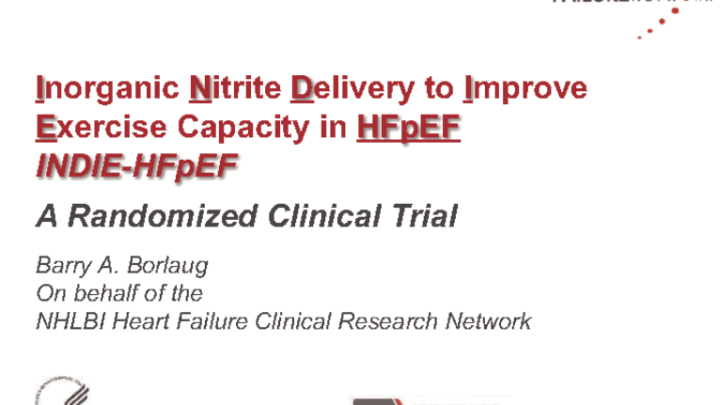
Social media is rife with information about dietary supplements, and physicians often play a fact-checking role. You might hear “I saw on TikTok that a greens powder can detox my liver,” “Do hair loss supplements work?,” and “A podcast host said berberine is nature’s Ozempic,” all within the same week. Patients arrive armed with claims they’ve heard about across social media platforms and podcasts.
It then falls on physicians to separate legitimate therapeutic potential from marketing hype, often while managing time-pressed consultations. “Advertising creates the idea they’re always beneficial; we must explain they’re only useful for certain problems,” writes a family medicine physician on Sermo.
Sermo members have shared what they are seeing in practice and how they’re navigating this complex landscape. Read on to discover what physicians are seeing in daily practice.
How often are patients asking about dietary supplements, and which ones?
A Sermo poll of physicians revealed just how common these conversations have become. Nearly three-quarters of members report that patients ask about online-promoted supplements at least occasionally, with 33% fielding the questions weekly or daily.
Doctors also weighed in on which supplements patients bring up the most, including greens powders, nootropics (both 24%), weight loss supplements like berberine (19%) and “anti-aging” collagen, peptide and protein blends (13%). “Rare to see a patient not ingesting some supplement; many start from the internet or word-of-mouth,” notes a general practitioner.
Consider creatine, which has evidence for promoting muscle growth when paired with resistance training. Online personalities may exaggerate its effects, claiming it delivers “instant muscle growth,” or is essential for fat loss. Some may promote certain creatine variants as superior to standard monohydrate, even though creatine monohydrate remains the most extensively studied form. Physicians are left to correct misconceptions when patients ask for clarity.
Berberine represents another popular supplement physicians discuss with patients. In a Sermo poll regarding claims that berberine is “nature’s Ozempic,” physician responses were as follows: 39% have reservations and want more research, 31% see its potential but don’t view it as a GLP-1 medication replacement, 19% wouldn’t recommend it and just 6% consider it a “miracle supplement.”
Clinical value vs. overhype
By and large, the Sermo community has a nuanced take on supplements; 49% of surveyed physicians on Sermo believe they’re sometimes useful, but usually overhyped.
Some members believe there are instances where supplements may be useful. “Older population[s] routinely told to supplement calcium; vitamin D deficiency [is] prevalent,” notes a general practitioner. “Supplements can help fix deficiencies—context matters,” shares another general practitioner.
For example, there are several supplements that have legitimate, well-researched scientific benefits for those who take them, including:
- Folic acid (vitamin B9)
Proven to reduce the risk of neural tube defects in pregnancy; and is also used for anemia prevention.
- Vitamin D and Calcium
Supports bone health, immune function, and muscle function. Supplementation is especially important in populations with limited sun exposure. Supplementation can also help prevent osteoporosis when dietary intake is low.
- Iron
Effective in preventing and treating iron-deficiency anemia, particularly in menstruating women, pregnant individuals, and children.
- Omega-3 fatty acids (fish oil, algae oil)
Beneficial for cardiovascular health, reducing triglycerides, and supporting brain function.
- Probiotics
Certain strains (e.g., Lactobacillus and Bifidobacterium) support gut health, can help reduce antibiotic-associated diarrhea, and may aid in managing IBS symptoms.
- Prebiotics (e.g., inulin, fructooligosaccharides)
Non-digestible fibers that promote healthy gut microbiota and improve digestive health.
- Vitamin B12
Important for nerve function and red blood cell production; supplementation is critical for vegans, vegetarians, and people with absorption issues resulting in clinical deficiency. However, the benefits for individuals with subclinical levels is debated.
- Magnesium
Magnesium is involved in over 300 biochemical reactions. It’s essential for energy production (ATP formation), protein synthesis, nucleic acid (DNA/RNA) synthesis, muscle and nerve function, regulation of vascular tone, and more.
- Zinc
Plays a role in immune health and wound healing; supplementation is beneficial in deficiency and may reduce duration of colds when taken early.
- Vitamin C
Supports immune system function and iron absorption; while it doesn’t prevent colds, it may slightly reduce their duration.
Others think supplements aren’t worth recommending. “We should advise better overall nutrition rather than worry about supplements,” a radiologist writes.
Sermo members approach supplements with skepticism when it comes to their personal use as well. Among surveyed doctors, 32% take supplements but choose which ones based on clinical evidence rather than trends, while 22% avoid them due to lack of regulation or evidence.
The supplement risk radar: interactions, toxicity, and delayed care
While supplements are available over the counter, they can have real clinical consequences. Half of surveyed physicians on Sermo report managing clinical issues caused by supplements, with 34% encountering problems multiple times.
Issues related to supplements can include:
- Drug interactions: Drug interactions are particularly concerning with anticoagulants, chemotherapy and cardiac medications. “Patients often have no idea how important full disclosure of prescription and nonprescription substances is,” writes an OBGYN on Sermo.
- Hepatotoxicity: High-dose or contaminated products can cause liver damage.
- Organ-specific risks: Sermo members have expressed concerns about treatment efficacy and organ damage. “Supplements in oncology can impact efficacy of treatments we use,” warns an oncologist.
- Excessive magnesium: Too much magnesium can cause diarrhea, nausea and in severe cases, hypotension or cardiac arrest.
- High-dose vitamin A: An excess of vitamin A can affect many areas of the body and can lead to nausea, liver damage, osteoporosis and exfoliative dermatitis.
- Iron overload: Excess iron can result in organ damage, particularly affecting the liver, heart and pancreas.
- Contamination concerns: Unregulated products can contain heavy metals, undisclosed pharmaceuticals or toxic compounds. “Patients assume supplements are harmless; risks include contamination and heavy metals—add supplement questions to every history,” advises an anesthesiologist on Sermo.
The influencer effect and regulation challenges
Physicians on Sermo have emphasized the importance of governmental regulations around supplements. “There should be regulations in the marketing of supplements,” states a cardiologist, also noting that “…patients spend resources on these and struggle to afford medications.”
Some have expressed frustrations with current regulations. “We need better regulation of dietary supplements,” argues a dermatologist. In a poll, 84% of respondents voted in support of increased regulation of supplement promotion, with 61% favoring significant increases. Promotions extend beyond traditional advertising to social media influencers and podcast hosts who make health claims.
Social media has become a powerful driver of supplement use, with patients increasingly influenced by posts that promise quick health benefits. Many supplements promoted online lack strong scientific evidence, yet influencers—often paid by brands—endorse them with confidence and authority. Patients don’t always recognize that these endorsements may be financially motivated, or that the influencer may not even use the products themselves. Because influencers excel at selling trust and certainty, their persuasive messaging can outweigh the absence of credible research, leading patients to believe in products that may offer little or no proven benefit.
In practice, stricter regulations wouldn’t necessarily wipe out all misinformation. Influencers’ content could still reach thousands of viewers before getting flagged. Physicians would still have reason to prepare to address these topics regardless of regulatory changes. Depending on the scenario, they might advocate for a whole food-first approach; explain the role of third-party certifications like U.S. Pharmacopeia (USP), National Sanitation Foundation (NSF) or ConsumerLab seals; or help patients understand what constitutes reliable scientific support.
A psychiatrist on Sermo sums up the educational challenge: “People believe ‘natural’ means safer—anything bioactive has risks and side effects.”
What works in the doctor’s office: quick, actionable counseling
Time-pressed physicians need efficient approaches to supplement discussions. A systematic one-minute screening can address key safety and efficacy concerns:
The four-question supplement screen:
- What are you taking? (specific products, not just categories)
- Why are you taking it? (patient’s goal or health concern)
- How much and how often? (dosage and frequency)
- Where did you get it? (source and brand reliability)
Follow-up actions:
- Interaction check: Use clinical decision support tools to screen for drug-supplement interactions.
- Organ risk assessment: Consider patient-specific contraindications (liver disease, kidney function, bleeding risk).
- Evidence-based alternatives: Suggest safer formulations or evidence-supported brands when indicated.
- Follow-up planning: Schedule reassessment of benefits and potential adverse effects.
A general practice physician on Sermo emphasizes the importance of comprehensive documentation: “Many products lack FDA-type certification; document frequency and dosage in the medical record.”
Key takeaways
Physicians have varying opinions on just how useful supplements are, and whether specific options are overhyped. However, these are some common themes throughout discussions on Sermo:
- Patient inquiries are frequent: Nearly three-quarters of physicians on Sermo reported supplement questions at least occasionally, with trending topics driven by social media promotion.
- Clinical value exists but is limited: Some supplements help in narrow, evidence-based contexts, but others are overmarketed relative to their proven benefits.
- Safety concerns are real: Half of physicians have managed supplement-related clinical issues, including interactions, toxicity, and delayed diagnosis.
- Regulation support is strong: 84% of physicians favor increased regulation of supplement promotion, particularly on social media platforms.
- Practical counseling works: Replace hype with nutrition-focused education and evidence-based recommendations when supplementation is appropriate.
The medical community seems to favor a measured approach—neither dismissive nor uncritically accepting, but focused on patient safety and evidence-based care. “All supplements should be guided by a family doctor; only those truly necessary should be consumed,” suggests one nephrologist.
Join the discussion on Sermo
There isn’t a one-size-fits-all approach to conversations around dietary supplements. Share your experiences with challenging cases, effective counseling approaches and patient education resources that work. Connect with more than 1.5 million healthcare professionals worldwide to exchange insights and evidence-based strategies for navigating the supplement conversation with patients.















